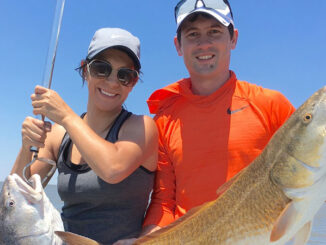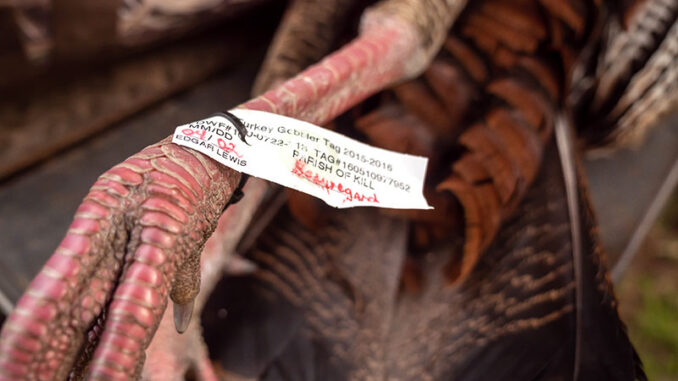
The state’s best turkey hunter that you’ve never heard of tells us how
Sometime in the early 1980’s, my friend and former Mississippi State turkey calling champion, Buddy Hanks was showing a perspective member his hunting club.
After riding for about an hour, the young man asked Hanks if it would be all right if he got out and walked back to the club house, thus getting a better idea of the habitat. Hanks made the perspective member aware that they were several miles from the camp before letting the young man out of the truck. Dressed only in converse tennis shoes, jeans and a green t-shirt, Hanks watched as the slender fellow melted into the woods.
Back at the camp, Hanks would find the club president, Gene Presley, preparing supper and looking forward to meeting the perspective member.
As the afternoon wore on, Hanks and Presley would eventually retire to the front porch, and with the sun beginning to dip into the western sky, the two men looked up to see their young guest coming up the driveway. Once he joined the two men on the porch, Hanks introduced Presley to his young friend.
“Gene, this is Chuck Jones from Tallulah,” he said. “I think he’d make a great member of the club.”
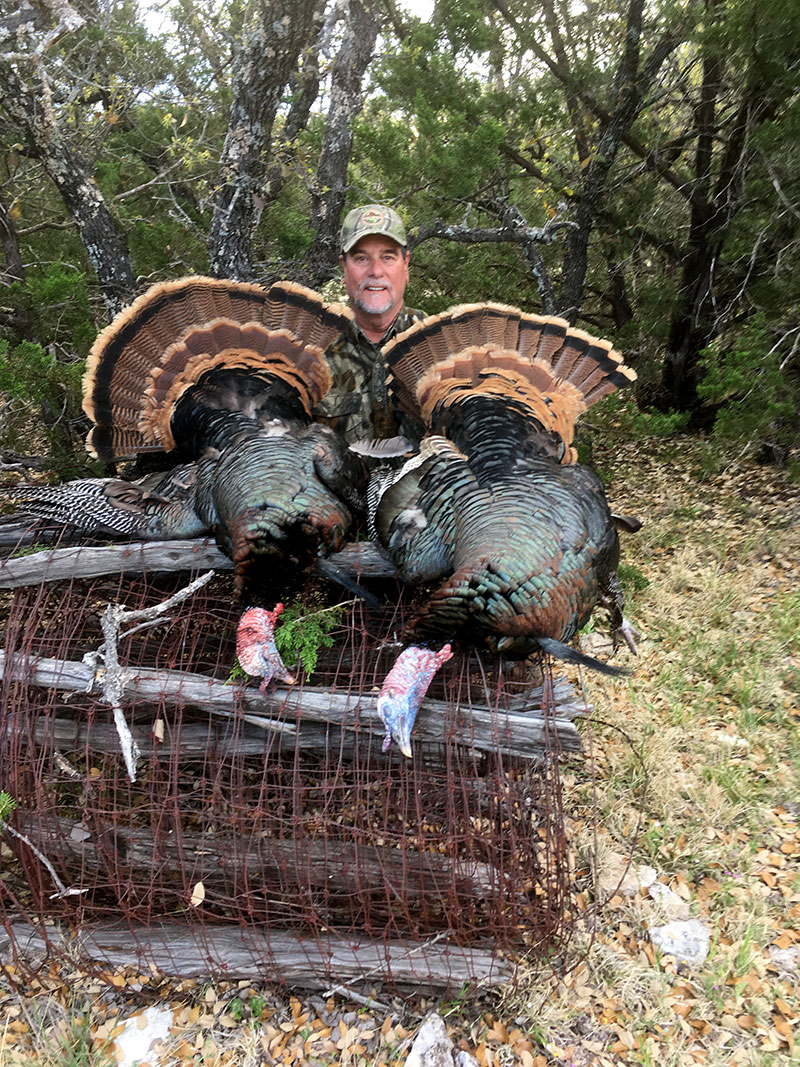
Presley stood silently looking at the young man, who was now covered in beggars lice and had obviously been in the deep woods and wading deep water, as evidenced by the water line across his shirt just below his neck.
After several silent moments, Presley looked at Hanks and exclaimed, “Buddy, we don’t need this guy in our hunting club. He’ll kill every turkey we have.”
Chuck Jones would join the hunting club and quickly become known as the single best turkey hunter on the membership rolls, a feat in itself considering the membership consisted of well known hunters and callers like Buddy Hanks, Will Primos, Cuz Strickland and Ron Jolly. Eventually, Primos would offer Jones a job helping shoot video for The Truth video series, which at the time was still in its infancy.
Primos minced no words when I recently asked about hiring Jones.
“I knew how to hunt,” he said. “I grew up hunting and was pretty good at it, but Chuck Jones was a certified killer. He operated in the spring woods unlike anyone I’d ever seen.”
Opportunities would come quickly for Jones and after a brief stint with Primos, he would join the Realtree production crew before eventually spending 15 years with Knight and Hale Game Calls producing both television and video. Recently, Jones has been lured back into the outdoor industry, this time by Mike Pentecost of Woodhaven Custom Calls.
Back living in Louisiana, I recently caught up with Jones for the first time in over a decade as we recorded an episode of the Louisiana Sportsman Podcast. Much of that conversation dealt with turkeys, turkey hunting and turkey hunters.
Below I’ll share a few of the questions I asked during our time together and what Jones had to say that will no doubt help your chances of being successful this spring.
What’s the biggest mistake turkey hunters make?
Jones told me that without a doubt, the single biggest mistake turkey hunters make is trying to hunt too fast.
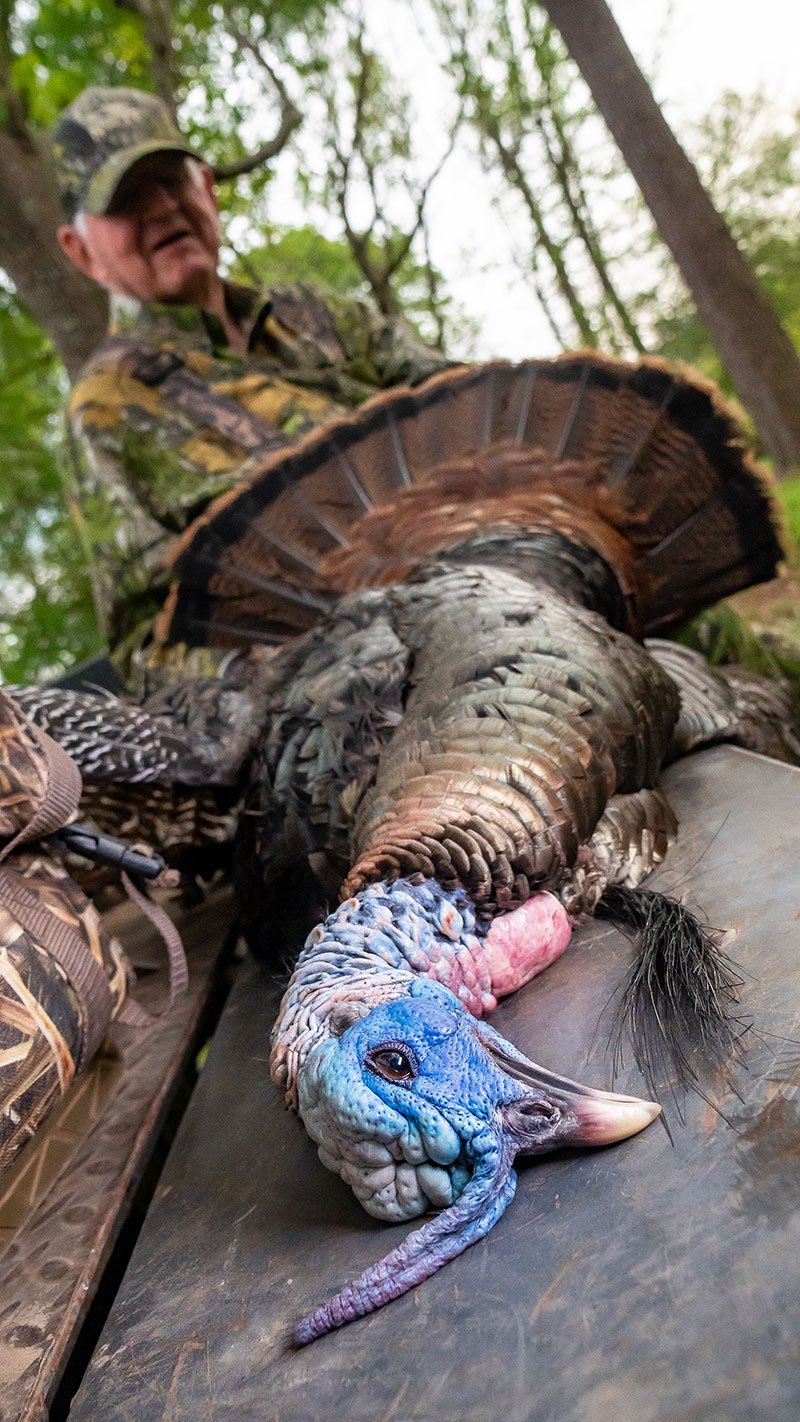
“Folks get zeroed in on a gobbling turkey, and in the process of trying to get into position to make a setup, they’ll bust other birds,” he said. “You’ve got to slow down each time you round a corner in a road or walk up to a rise. You also need to use your ears as well as your eyes.”
Jones suggested stopping periodically to listen, and not just for turkeys gobbling or yelping.
“Listen for birds scratching or walking in the woods, and always be listening for a drumming gobbler,” he said.
What’s a tip you can share with new turkey hunters?
The veteran hunter said that several times each spring season he will need to ask a fellow hunter not to walk too closely to him in the woods.
“When two or more folks are walking together, it can be difficult to hear a bird gobbling in the distance or a gobbler drumming closely,” he said. “When the group stops, stand several feet away from the hunter doing the calling. That way you can hear a bird gobble and not just the calling.”
Jones went on to add that when you arrive at your destination, exit your vehicle as quietly as possible, and when you try locating a gobbler, do so several feet away from the truck.
“When you get out of your truck, the motor will generally pop and make some noises on cool mornings,” he said. “You want to be away from anything that may cover up the sound of a distant gobble.”
What’s the most common virtue good turkey hunters have?
One of the many benefits of hunting around the great Harold Knight was the lesson in patience Jones would learn.
“I saw countless days when turkeys would go silent or not respond to calls,” he said. “Often we would walk for miles and not strike a bird.”
Jones said he learned how to deal with those tough days by hunting alongside Knight. Together they would identify an area turkeys were using. A strut zone, food plot or field, somewhere with some fresh sign.
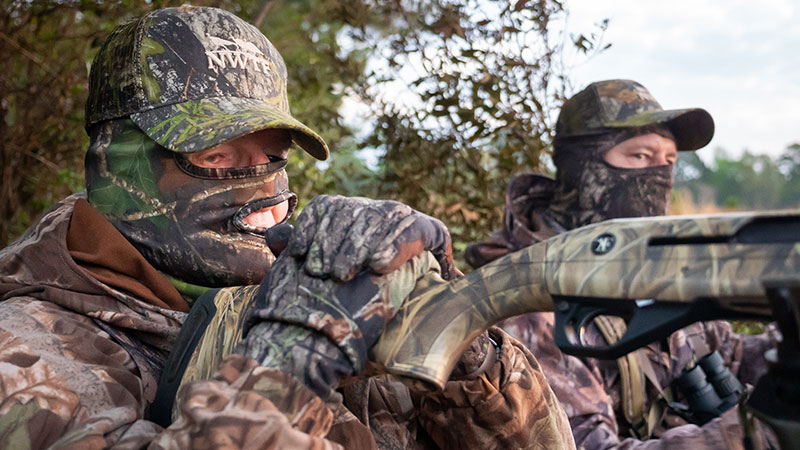
“At that point we would put out a decoy, get comfortable and call sparingly,” he said.
Jones added that lots of times those birds will slip in quietly, not gobbling at all.
“You have to be relaxed and patient, but at the same time you must pay attention,” he said.
Favorite public land strategy?
“Get off the roads and trails,” Jones said. “Get down in the bottoms where it’s tougher to walk around. And be prepared to do a lot of walking.”
Jones believes that gobblers learn quickly to associate humans with roads or trails. For this reason, he stays away from them on public land.
“I want to get as far away from everyone else as I can, knowing that the vast majority of turkey hunters aren’t going to walk more than a few hundred yards off the road,” he said.
GPS research conducted by LSU and the University of Georgia confirms what Jones believes. Not only do most hunters not go far off the beaten path, but spooked or bumped turkeys don’t go far either.
“When you bump one of those public land birds, they’re gonna go quiet on you,” he said. “You have to be willing to call sparingly and wait him out.”
What’s in your turkey vest?
Jones said he carries a “handful” of mouth yelpers at all times.
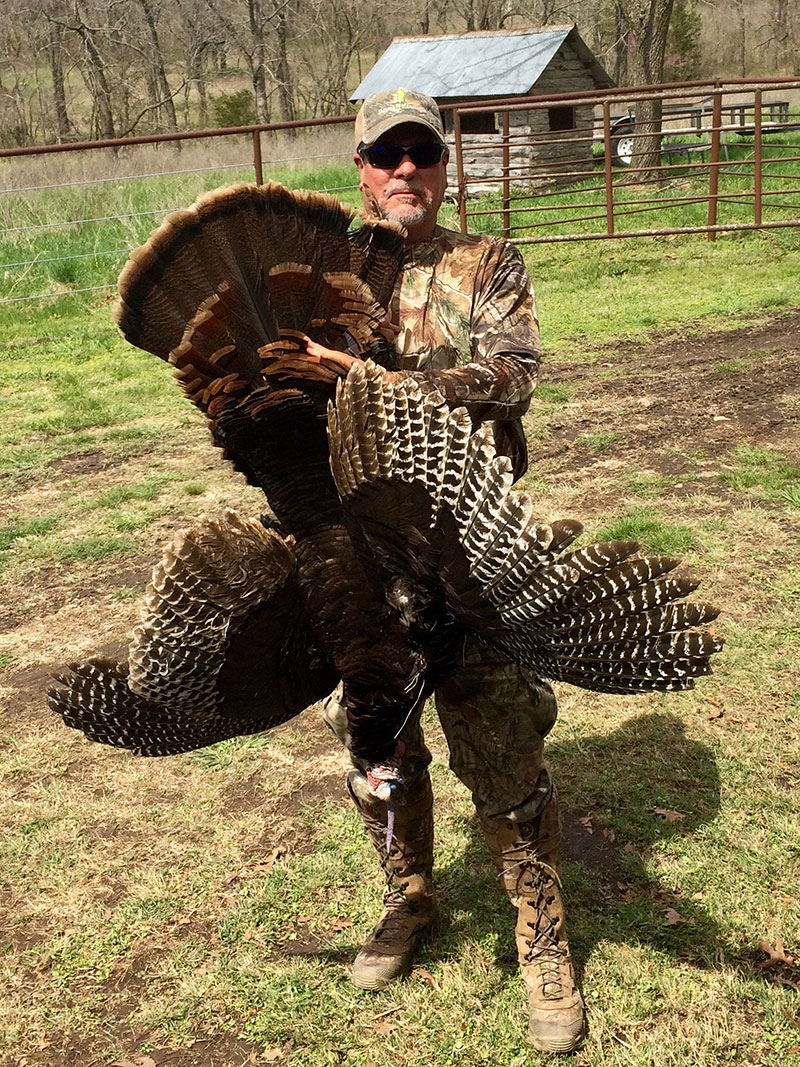
“I’m looking for a call that I can do a lot of different things on,” he said. “Yelp, cut, kee kee and purr.”
The veteran hunter suggested finding a call that works well for you.
“I see lots of hunters trying to run a mouth call that’s really not a good match for them,” he said. “Everyone is different, so it takes time to figure out what cut and which materials work best for you.”
He went on to add that he’s seen lots of gobblers spooked because someone wanted to be cool and use a mouth call.
“The bottom line is, anyone can sound more like a hen with a pot or friction call versus a mouth call in most situations,” he said.
Jones continued by telling me that he carries two or three pot calls with him.
“I’m a huge fan of the Woodhaven Ceramic Fusion and the Cherry Classic Crystal. Between those two calls I can do everything I need in the spring woods,” he said, adding that he always carries a box call. “I want something I can use when the wind is up, something I can really cut the distance with.”
In closing, I’m happy to report that Chuck Jones is finally getting some long overdue recognition for his time in the outdoor industry. As I was putting the finishing touches on this story I received a text message from Jones, letting me know that during the recent NWTF National Convention held in Nashville, Tenn., he was made aware that he will be inducted into the Outdoor Legends Hall of Fame in 2025.
That’s a call that’s long overdue.


